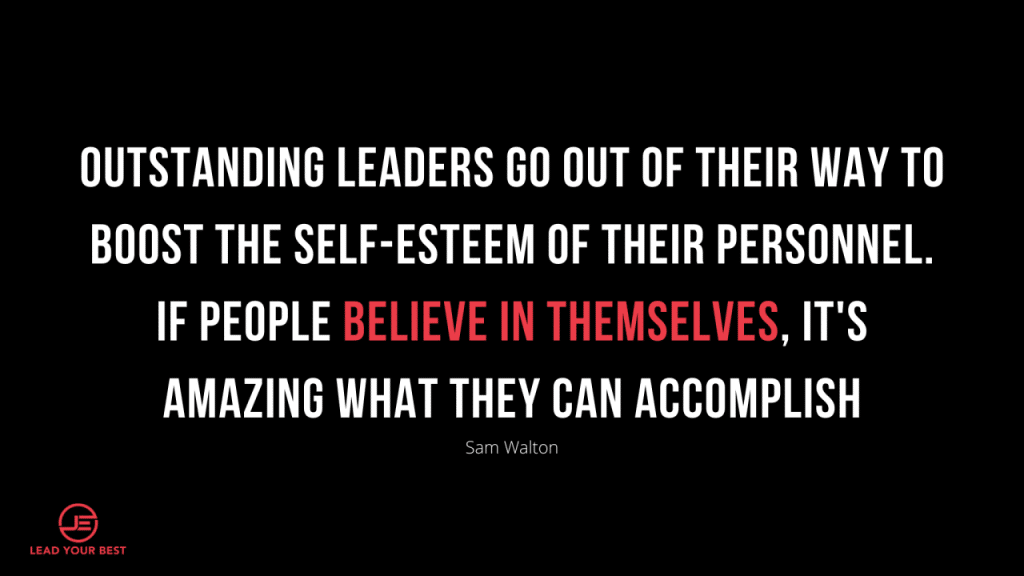
Modern employees have needs—a lot of them. The typical needs revolve around fair compensation, exciting work, and being a part of a team.
Meeting these basic needs as a leader is essential to have engaged, productive, and positive team members over time. However, it’s meeting a team member’s advanced needs where the difference between a manager and a leader begins to emerge.
Managers meet their team’s basic needs, leaders meet their team’s advanced needs.
Difference Between a Want, Need, and an Advanced Need
It’s common to use the words want and need interchangeably. Just for the sake of clarity, there is a slight distinction between the two.
Want: have a desire to possess or do something; wish for
Need: require something because it’s essential or very important rather than just desirable.
The difference between an employee’s basic needs and their advanced needs is slightly more complicated. Most people are familiar with Maslow’s Hierarchy of Needs; when it comes to employees, the basic needs are essential and fall within Maslow’s “deficiency needs” (physiological, safety, belonging, esteem). Maslow’s top-level, known as “growth needs,” by definition, growth needs do not stem from the lack of something, but rather the desire to grow as a person. This is precisely where most of the advanced needs employees desire now live.
Since this pandemic has changed many of us in ways we couldn’t imagine, the advanced needs of employees have evolved. Here are five things modern employees need, whether they know it or not, that all leaders must know.
1. They “Need” a Flexible Schedule
The jury is still out on what companies will do with the work from home model post-pandemic. Companies like Ford and others have adopted permanent work from home policies. The future of work is almost certainly a hybrid model.
Regardless of your company’s WFH policy moving forward, professionals have had a taste of flexibility, and they loved it. Whether it be having family dinner at 5:30, workouts during breaks in the calendar, working from a tropical desk, or avoiding rush hour traffic, flexibility is now essential. I would go as far as to say, companies and bosses that offer no flexibility will be forced to overpay for talented team members.
“The best leaders will embrace calendar flexibility to attract and retain top talent.”
While there are industries and situations where being in the same room has enormous advantages and will always be required, leaders who embrace flexibility will attract and retain top talent.
2. They “Need” Development Opportunities
A lightbulb has turned on for many professionals thanks to the ease of access to educational content. We no longer need to wait for the next company-wide training event to grow and develop our skills. It turns out that having a growth mindset is one of the essential things professionals need to adopt.
View media in original article
The best leaders provide development opportunities to encourage their people to have a growth mindset. Things like workshops, seminars, conferences, books, and lunch & learns are great ways to help employees scratch their development needs.
3. They “Need” to Be Empowered to Make Decisions
No one likes to be micromanaged, but most managers ignore this because they don’t believe they are the micromanaging type. Indeed defines micromanagement as; a management style that involves the close supervision of an employee by their manager.
Too many managers second guess every decision their people make in fear of losing control or the belief that no one can do the work as well as they can. Micromanagement is a hurdle every manager can and must overcome because employees have an advanced need to be empowered to make decisions.
In his new book Winning the War in Your Mind, Craig Groeschel said, “The strength of your organization is not a reflection of what you control, it’s who you empower.”
Not only is Groeschel correct but he should have you asking yourself the question, “Can you let go and allow your people to do their best work?
4. They “Need” You to Behave Like a Coach
You might think I am a broken record, writing about managers behaving and acting like a coach, but I will not stop until it starts to become a reality. It is the most crucial skill for a manager to develop today. (See if the next Coaching for Excellence workshop is for you.)
Coaching is the most crucial skill for managers to develop in the modern workforce.
We love to believe people are self-made, but that has never been true. It’s often the coaching of someone else that helps us become the best version of ourselves and grow our self-belief. Since most professionals or HR budgets don’t set aside a budget for an external coach, this responsibility falls squarely on the manager’s shoulder.
If you aren’t comfortable with playing the role of a coach, at a minimum, equip yourself with a couple of great coaching questions:
- What do you think we should do to create the best result for everyone?
- If you are saying yes to this, what are you saying no to? (Out of the Michael Bungay Stanier Playbook)
5. They “Need” You to Share the Truth
This one might have caught you by surprise, but in order to grow, people need the truth. Unfortunately, too many managers and executives avoid sharing the truth with people in fear of how they might react or them leaving altogether.
Take Brent the CEO of a small business as an example. During a coaching conversation, he said something that caught me by surprise. “John, I just can’t fire this person on my team. She has been there too long and has added value over the years. Having said that, she doesn’t put in the maximum effort anymore and brings a lot of negativity into the office.” Without beating him up, I just asked him a simple question, “If someone had information about you that was true that would help you improve, would you want them to share it with you?” Without hesitation, he said “yes.”
Part of your job as a leader is to share the truth with people and that requires courage. I wrote about courage here, but I define it in Building the Best as, “Being frightened and deciding to do it anyway.” Choose courage and share the truth with your team.
In the comments below, tell me what you think. What advanced employee needs are you experiencing yourself or have observed with your people?
Take the Free Leadership Style Quiz? Join over 55k leaders and discover your current leadership style for free.

About the Author: John Eades is the CEO of LearnLoft, a leadership development company helping executives and managers to lead their best. He was named one of LinkedIn’s Top Voices in Management & Workplace. John is also the author of Building the Best: 8 Proven Leadership Principles to Elevate Others to Success. You can follow him on Instagram @johngeades. |
